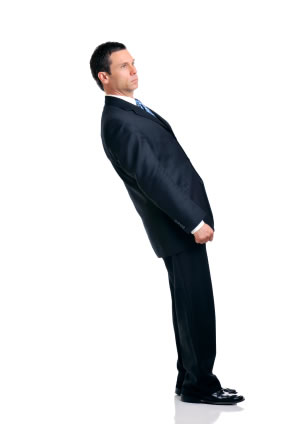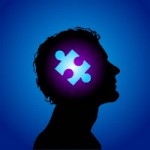Published: November 8, 2011

©istockphoto
We’re not always aware of how we are making a decision. Unconscious feelings or perceptions may influence us. Another important source of information—even if we’re unaware of it—is the body itself.
“Decision making, like other cognitive processes, is an integration of multiple sources of information—memory, visual imagery, and bodily information, like posture,” says Anita Eerland, a psychologist at Erasmus University Rotterdam in the Netherlands. In a new study, Eerland and colleagues Tulio Guadalupe and Rolf Zwaan found that surreptitiously manipulating the tilt of the body influences people’s estimates of quantities, such as sizes, numbers, or percentages. The findings will appear in an upcoming issue of Psychological Science, a journal published by the Association for Psychological Science.
When we think about numbers, we mentally represent smaller numbers to the left and larger numbers to the right. The researchers surmised that leaning one way or the other—even imperceptibly—might therefore nudge people to estimate lower or higher. To test this hypothesis, study participants—33 undergraduates—stood on a Wii Balance Board that imperceptibly manipulated their posture to tilt left or right or stay upright while they answered estimation questions appearing on a screen. The participants were told they probably didn’t know the answers and therefore would have to estimate; they were also instructed to stand upright throughout the trials. A representation on the screen, below the question, of the person’s posture showed it to be upright even when it was not. The participants answered the questions one by one verbally. [continue reading…]
Published: December 15, 2009
We show how being “jilted”—that is, being thwarted from obtaining a desired outcome—can concurrently increase desire to obtain the outcome, but reduce its actual attractiveness. Thus, people can come to both want something more and like it less. Two experiments illustrate such disjunctions following jilting experiences. In Experiment 1, participants who failed to win a prize were willing to pay more for it than those who won it, but were also more likely to trade it away when they ultimately obtained it. In Experiment 2, failure to obtain an expected reward led to increased choice, but also negatively biased evaluation, of an item that was merely similar to that reward. Such disjunctions were exhibited particularly by individuals low in intensity of felt affect, a finding supporting an emotional basis for relative harmonization of wanting and liking. These results demonstrate how dissociable psychological subsystems for wanting and liking can be driven in opposing directions.
Source: Association for Psychological Science
Published: August 13, 2008

Neither snap judgements nor sleeping on a problem are any better than conscious thinking for making complex decisions, according to new research.
The finding debunks a controversial 2006 research result asserting that unconscious thought is superior for complex decisions, such as buying a house or car. If anything, the new study suggests that conscious thought leads to better choices. [continue reading…]
Findings provide insight into clinical disorders characterised by low serotonin level, such as depression, obsessive compulsive disorder and severe anxiety.
New research by scientists at the University of Cambridge suggests that the neurotransmitter serotonin, which acts as a chemical messenger between nerve cells, plays a critical role in regulating emotions such as aggression during social decision-making.
Serotonin has long been associated with social behaviour, but its precise involvement in impulsive aggression has been controversial. Though many have hypothesised the link between serotonin and impulsivity, this is one of the first studies to show a causal link between the two.
Serotonin is manufactured in the body from the amino acid, tryptophan, which is present in several foods – and cheese is a particularly good source.
[continue reading…]


